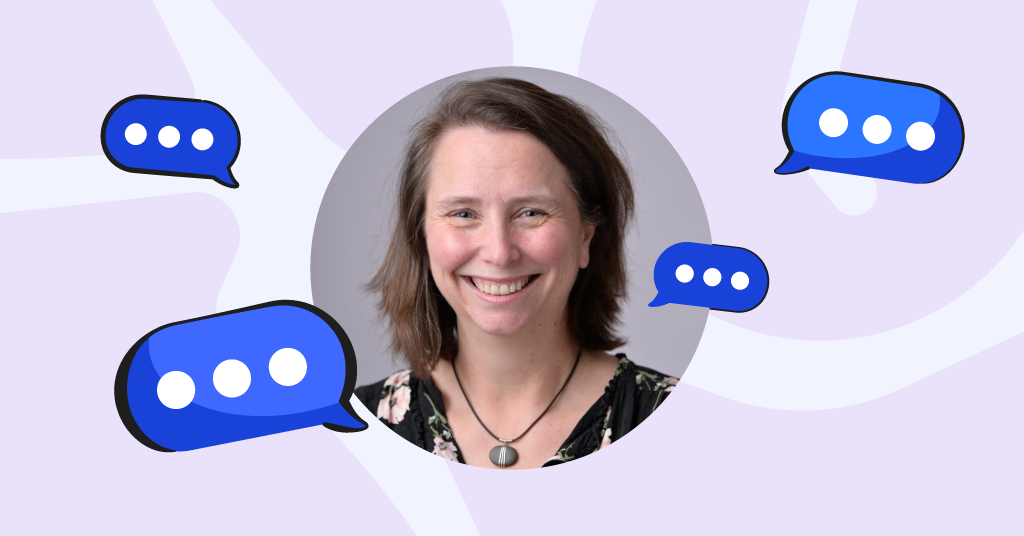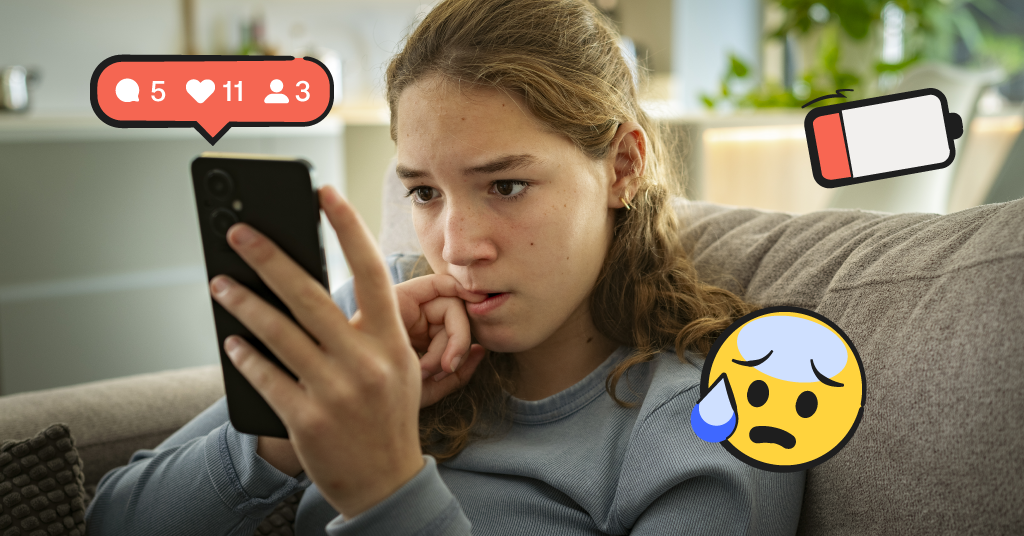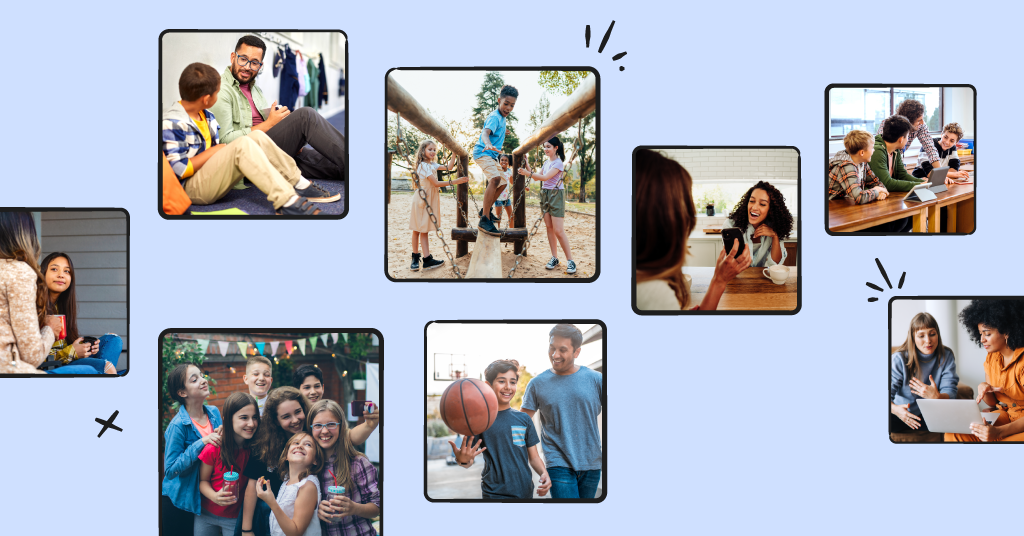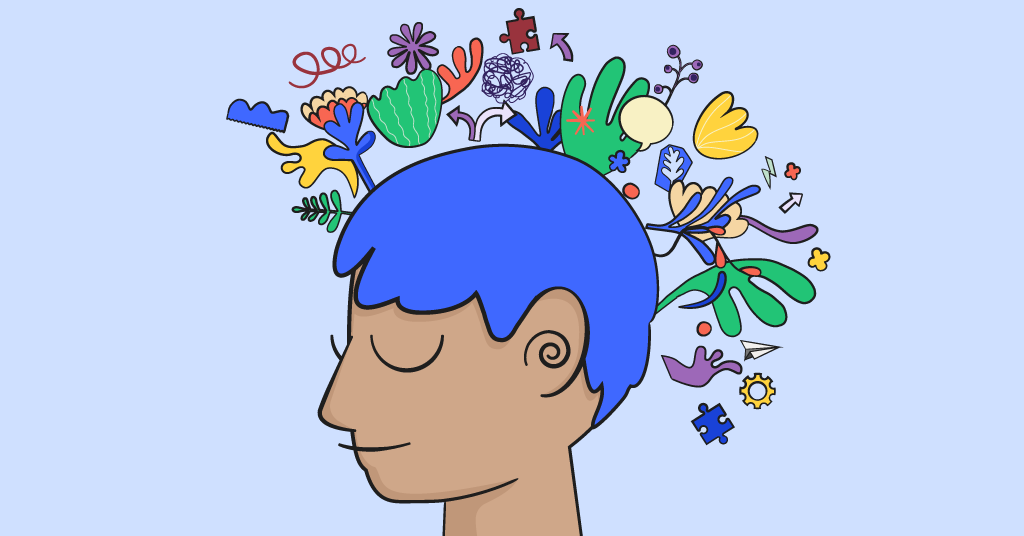Have you ever wondered if other parents and caregivers are experiencing the same things you are — including the really hard stuff? The answer is a resounding yes, but not everyone has been able to connect with others and learn just how often we’re all experiencing the same challenges.
Casie Fariello, co-founder and CEO of Other Parents Like Me, witnessed firsthand the transformative power of listening to, connecting with, and feeling heard by other caregivers while her child was in treatment. She set out to create an accessible space for others like her to gather and share their stories — all virtually, all anonymously.
We recently spoke with her to learn more about this impactful movement, discuss how tech can play a supportive role in building community, and why even a single shared story can make all the difference, especially during tough times.
What is Other Parents Like Me?
Other Parents Like Me (OPLM) is the largest online community dedicated to supporting parents of children facing mental health challenges. Led by trained peer parents, OPLM offers 17 live online support groups each week, expert-led webinars, and a comprehensive resource hub with a directory of professionals, books, podcasts, and articles.
Serving families across all 50 states, 11 countries, and over 300 cities, OPLM is more than just support — it's a lifeline for parents navigating some of their hardest moments.
Tell us a little bit about yourself. What was the “aha” moment that made you say, “I need to create a community for parents like me”?
I’m a mom of three, and each of my kids has struggled with their mental health in different ways—through eating disorders, self-harm, and substance use. For years, I felt like I was barely holding it together, trying to manage the chaos while quietly falling apart myself. I didn’t fully acknowledge how deeply it was affecting me, too.
My aha moment came when one of my kids was in treatment, and I finally joined a parent support group. At first, I didn’t say much. I just listened. But hearing other parents voice the things I had never dared to say out loud—it was like a lifeline. I realized I wasn’t alone. And if I needed that kind of space, then there had to be other parents who needed it too.
That’s how Other Parents Like Me was born. It’s a virtual, anonymous space where parents and caregivers can show up exactly as they are. Pajamas welcome. Cameras optional. It’s about being seen, held, and understood in the middle of what can feel like one of the most isolating experiences a parent can face.
What makes OPLM different from other parenting groups out there?
At its core, OPLM is a peer-led initiative. We’re not therapists, and we’re not trying to “fix” anyone. We’re parents who’ve been there, sitting beside other parents who are just trying to get through the day.
What makes us different is that we don’t separate parents based on diagnosis, age, or behavior. Whether your child is struggling with depression, anxiety, substance use, an eating disorder—or something you don’t even have a name for yet—you have a place here. We’ve created a space where you belong.
We offer daily support meetings, weekly expert speaker talks, and a rich library of resources. Our meetings are camera-optional, judgment-free, and trauma-informed. It’s not just about surviving the crisis — it’s about healing yourself as a parent, too.
What are the most common struggles you see parents bring to OPLM?
Parents often show up overwhelmed, heartbroken, and convinced they’re the only ones living this reality. There’s a lot of shame and fear. They’re questioning everything: Did I miss something? Should I have done more? Will my kid ever be okay?
One of the biggest struggles is simply not knowing what to do, and feeling like the system keeps letting them down. Many are also dealing with relationship strain, burnout, and grief — not just grief for what’s happening, but for the parenting experience they thought they were going to have.
A lot of our work is about helping parents step out of the “fix it” role and into a more compassionate, grounded space where they can hold boundaries and love at the same time.
Tech is such a big part of family life now. How does it come up in conversations you’ve seen?
It comes up constantly. Phones, social media, gaming — it’s like a second language for our kids, and for many parents, it feels like a battle they’re never winning.
We hear stories about teens isolating behind screens, exposure to dangerous content, or secret apps being used to hide self-harming behavior. At the same time, there’s this fear of cutting kids off from their only social lifeline. It’s complicated.
The bigger conversation is about boundaries, trust, and safety. We try to help parents move from panic to curiosity so they can ask, “What is my child using this for? What’s the unmet need underneath the behavior?” Tech is the entry point, but the real conversation is often about connection.
Can you share a story that captures the positive impact you’ve seen OPLM have on a family?
One story that has stayed with me goes back to our very first week in 2022. A mom joined one of our support meetings for parents with kids in treatment. Her daughter was just 10 years old—adopted, and struggling with intense suicidal ideation. She was exhausted, terrified, and holding it together by a thread.
In that same group was another mom whose 22-year-old had just come forward, asking for help after years of hidden drug use that started back in college. Her family was still reeling, trying to navigate rehab for the first time.
These two parents were in completely different stages of life, facing different diagnoses and treatment paths. And yet—they connected. They saw each other’s grief, resilience, and love. They became friends, not because their stories were the same, but because they recognized themselves in each other.
That’s the power of OPLM. We don’t divide parents—we bring them together. And those connections can be life-changing.
What advice do you have for a parent who’s just discovered their child is struggling with their mental health?
First, take a breath. You’re not alone, and this isn’t your fault. I know your mind might be spinning with questions and fear, but right now, the most powerful thing you can do is pause and get support for yourself.
You don’t have to have all the answers. What you do need is a space where you can process, feel, and figure out what’s next. Find other parents who get it, and who can walk beside you without judgment. That’s where OPLM comes in. You deserve that kind of support. Your healing matters just as much as your child’s.
How do you hope OPLM evolves in the next few years?
My dream is for OPLM to be the go-to resource for any parent navigating a child’s mental health or substance-use challenges. We want to expand our reach into schools, healthcare systems, and workplaces so that parents can find us before they hit crisis mode.
We’re building toward one-on-one parent mentoring, 24/7 support, topic-specific resources, in-person retreats, and eventually, a collective that helps redefine what it means to support families in a holistic, accessible, and deeply human way.
Because parents shouldn’t have to struggle in silence. And healing doesn’t have to wait.
Need more help raising kids in the digital age?
In addition to the connection found through Other Parents Like Me, caregivers can also tap into Parenting in a Tech World, Bark’s Facebook group. Here, 600,000+ members provide solidarity, insight, and support for everything related to parenting in the modern world — from the latest social media trends to all the big feelings that come with growing up with technology.
We also regularly update our blog, our content reviews, and our tech guides so you can stay up-to-date on the latest digital news, mental health topics, and more.
Read more
Bark helps families manage and protect their children’s digital lives.






